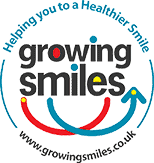If you have been counting the days until the chocolate eggs can finally be broken into and eaten at an alarming rate save a thought for your own and your family’s teeth? Without them you might find Easter slightly less satisfying! Teeth are key to eating, speaking and appearance -nothing new there but pause for thought? Teeth? Often we only reflect on their role in our lives when they aren’t doing what they are meant to and hindsight becomes wishful thinking of how important it is to look after them.
Chocolate in all its hues is a treat and should be seen as such. With a growing epidemic of weight related problems and rising figures of childhood obesity we need to take a hard look at what and when we eat chocolate and other sugar containing food and drink.
Good nutrition is fundamental to good health. The ability to chew food and swallow is the first stage in the digestive process. Loss of this function can have a major impact on nutritional health and well being particularly amongst the young, elderly and less able. Tooth decay left untreated can result in pain and potential infection, which may have an impact on nutritional status (even if most likely the result of poor nutrition!) Tooth sensitivity from acid erosion and or gum recession tends to lead to avoiding triggers, often cold drinks, which may reduce fluid intake and dehydration.
Poor nutrition can also affect gum health. The gums and structures that support the teeth in the jaw are connective tissues and require adequate nutrients for health, (think scurvy in sailors in centuries past). There is a wide body of evidence supporting the importance of nutrition for gum (periodontal) health. Oral dryness increases the risk of tooth decay and gum disease as well as tooth surface loss such as acid erosion. Saliva is a secret helper in the mouth; it coats the lining of the mouth and acts as a lubricant protecting it from trauma during eating, swallowing and speaking. People with little saliva (xerostomia) may have a sore mouth and find food, (especially dry food), sticks to the inside of the mouth.
Saliva aids taste and digestion by helping prepare food for swallowing and its antimicrobial properties protect the teeth and gums by controlling plaque bacteria and buffering sugars and acids. Oral dryness can make dentures difficult to wear and as often these are older people, it can affect the ability to chew, impacting nutrition and quality of life. Certain health conditions, poor diet and the use of certain drugs are thought to play a key role in oral dryness. Too little saliva and dry mouth can be caused by diseases e.g. diabetes, Sjogren’s syndrome, HIV/AIDS and Parkinsons disease. Dry mouth related to chemotherapy and radiation therapy can result in rampant tooth decay, ulcers and soft tissue inflammation. Smoking cigarettes and many commonly used medicines are known to affect saliva flow increasing the risk of dental disease and poor nutrition.
Limited opening due to joint problems, facial paralysis or nerve damage can also impact on nutrition and oral health limiting the type and texture of food consumed. Frequent vomiting as a result of pregnancy, eating disorders or gastric reflux can have short and long term effects on oral health, as can sports supplements. Sugars/acids in a dry mouth (e.g. a dehydrated mouth after exercise) can have a dramatic negative effect in a relatively short space of time. It is very important that any nutritional supplements, either food and or drink are assessed and their use monitored for potential damage to dental health. Advice should be sought on how to boost remineralisation of the tooth surfaces and reduce the risk of tooth decay, acid erosion and promote good saliva flow.
Generally 4 sugar/acids intakes per day – including mealtimes are recommended for good oral health – but if you have poor saliva flow or struggle to keep teeth clean this needs to be reviewed by
a dental professional. Avoid any food or drink containing sugar before sleeping and brush teeth with fluoride toothpaste, spitting out, but not rinsing after brushing.
Good oral hygiene is not just for health but also social interaction…. Up close and personal with bad breath? See February GS newsletter. Thorough tooth brushing (at night and one other time each day) and cleaning between the teeth daily will reduce the risk of disease and promote fresh breath. Those who are not able to eat and rely on other means of nutrition should have their teeth and mouth cleaned daily to prevent disease and help breath freshness, important for social interaction and quality of life. This is something which a carer or loved one can do and will be much appreciated (think how you feel if you have been ill when you can have a shower and brush your teeth). Look out for GS ‘how to’ videos coming soon.
Eating well not only has benefits for your figure but also for your dental health. Enjoy the Easter eggs, but view their consumption as a treat preferably at a mealtime!
Poor diet has implications for general, dental health and well being. To find out how you can prevent dental disease book a session with a Growing smiles coach today.
Happy Easter! 🙂

